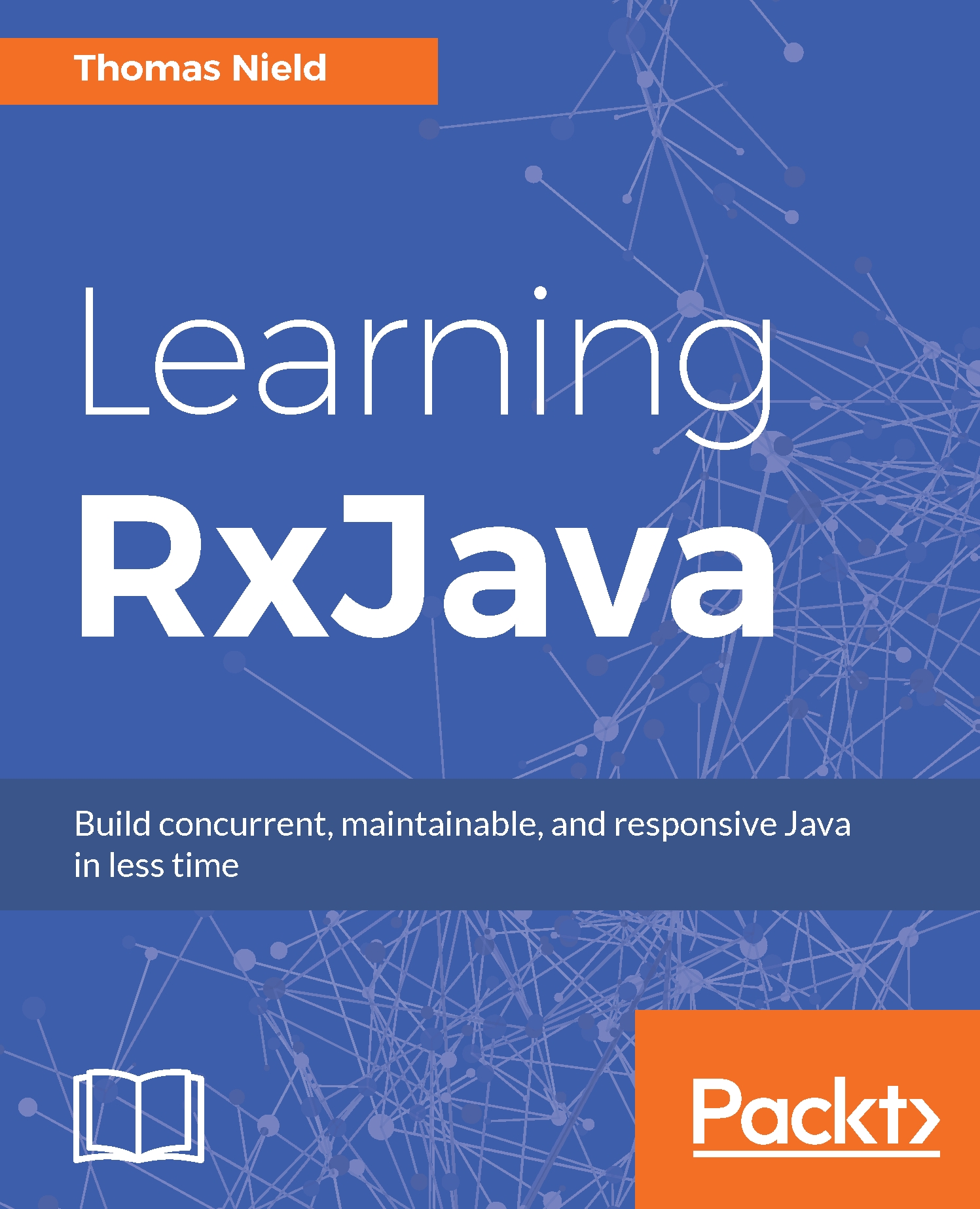In RxJava, there are ways to implement your own custom operators using the compose() and lift() methods, which exist on both Observable and Flowable. Most of the time, you will likely want to compose existing RxJava operators to create a new operator. But on occasion, you may find yourself needing an operator that must be built from scratch. The latter is a lot more work, but we will cover how to do both of these tasks.
In this chapter, we will cover the following topics:
- Composing new operators with existing operators using compose() and Transformers
- The to() operator
- Implementing operators from scratch with lift()
- RxJava2-Extras and RxJava2Extensions


